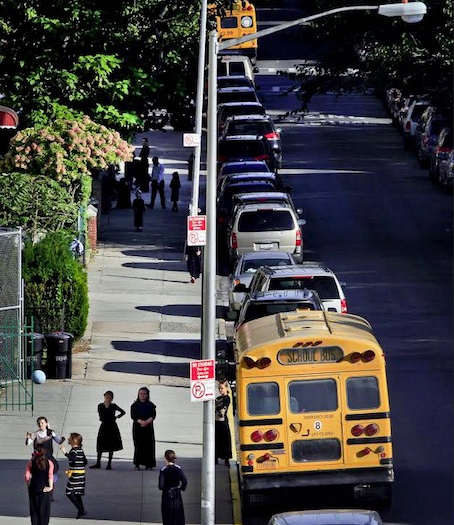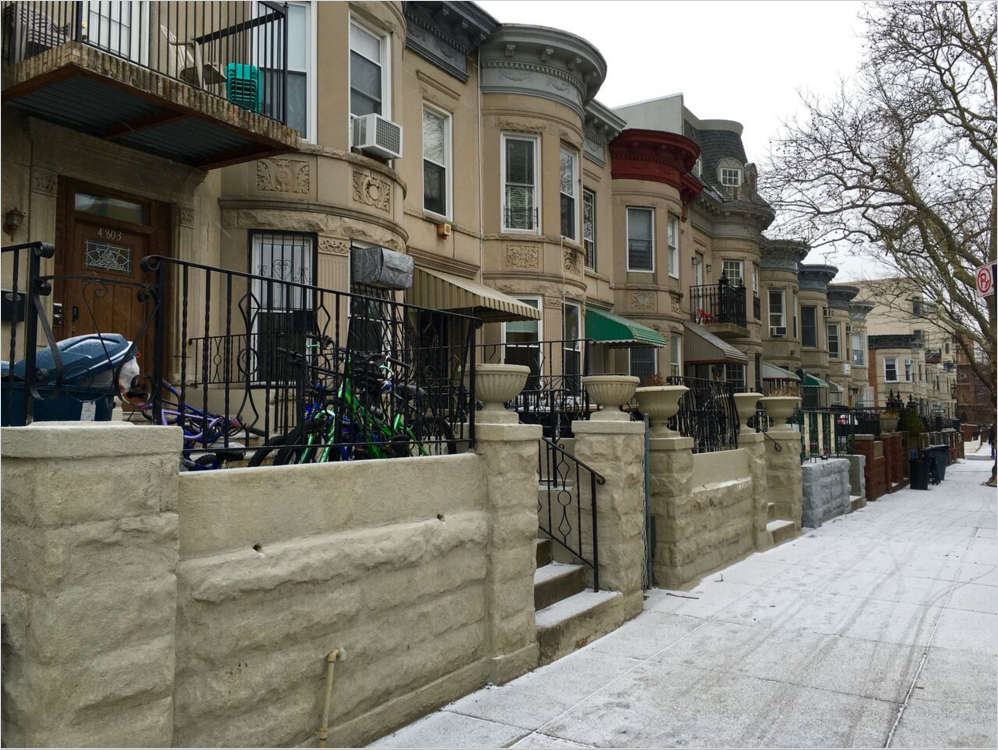Religion Vs Education: City probes Orthodox schools, 38 in Brooklyn

In this 2013 file photo, children gather on a sidewalk near school buses in Borough
The story that Yeshivas serving New York’s Hasidic communities – including 38 in Brooklyn’s Crown Heights, Williamsburg and Borough Park neighborhoods — provide scant secular education to their students has hit a nerve with readers across the Internet.
Boys attending the ultra-Orthodox Jewish schools receive almost no education in math, science, American history or other subjects considered essential in today’s world, even though private schools by state law must provide an education “substantially equivalent” to that of public schools.
Since the story broke earlier this week, commenters to this paper and many others have both criticized the schools and praised them, with some calling for the city to mind its own business.
